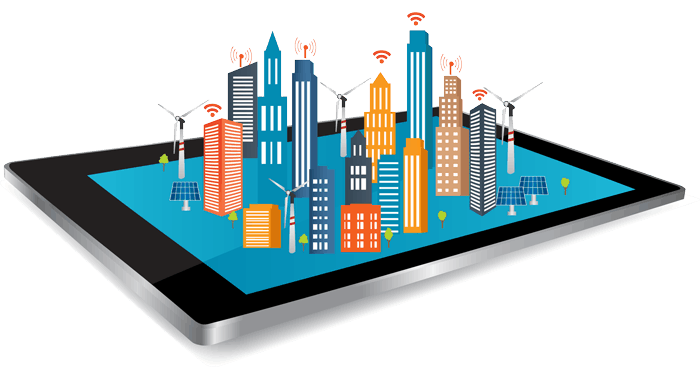
In increasingly urban societies that see the constant exchange of people and goods, the transportation sector is undergoing some of its most profound changes in decades.
Intelligent rail management systems enable subway trains to carry millions of people in smart cities efficiently and safely every day. Seaports use terminal operating systems that enable the 24/7 movement of goods.
In this blog series, we explore how technological innovations have delivered safety, efficiency and safety to the transport systems that are critical to any major city today. We also look at how resiliency is becoming increasingly important, with intelligence and sensing now a central part of any modern transport network.
In smart cities, transport systems are being transformed
Digital innovation is going to define the future of transport, according to experts in surveys. From autonomous vehicles to better-run subway trains, the critical task of moving people and goods around in a city has never been more important. Find out how cities are tackling challenges by transforming for the future.
Building resilience in transportation systems with edge computing solutions
The transportation sector is entering an era where interconnected systems promise to bring greater safety, convenience, and utility to its millions of users. However, not all systems are made for the high level of resilience that a transportation system requires.
In this article, find out what a system needs to have to be truly ready for the important job of running tomorrow’s digitally driven transport systems.
Fault tolerant servers key to India’s dedicated freight-only railway lines to decongest roads and reduce emissions
India, one of the world’s fastest-growing economies, faces mounting challenges in its transportation infrastructure due to increasing road congestion and rising emissions. The country has embarked on an ambitious plan to develop dedicated freight-only railway lines to alleviate these issues. These new lines promise to decongest roads, reduce emissions, and transform the logistics landscape. Fault-tolerant servers emerge as a critical component to ensure this vast rail network’s smooth functioning and efficiency. In this blog, we explore how fault-tolerant servers play a pivotal role in enabling India’s dedicated freight-only railway lines and discuss the numerous benefits they bring to this transformative transportation initiative.
Fill out the form to
read the full blog posts
We value your privacy and will not rent or sell your email address.
